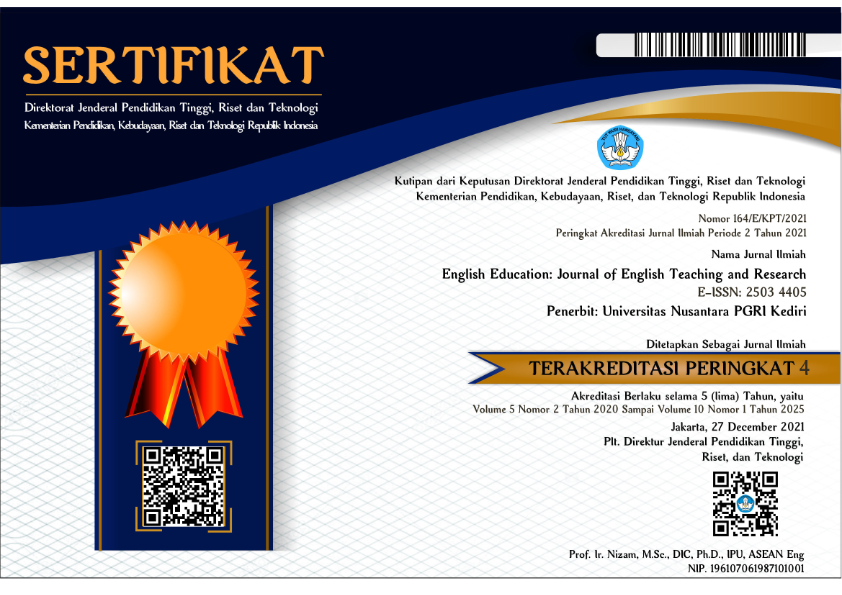Cultural Background and First Language Acquisition as the Errors Interfere in Second Language Acquisition : a Case Indonesian EFL Writing
DOI:
https://doi.org/10.29407/jetar.v4i1.12864Abstract
Abstract : Error Analysis is one of the major topics in the field of second language acquisition research. The learner of English as a second language is unaware of the existence of the particular system or rule in English language. The learner’s errors have long been interested for second and foreign language researchers. Some factors contributes in error of second language acquistion are habit formation relates to cultural background which bound their backgorund in education and another aspects. This paper attempts to investigate the notion of cultural background as the factors of errors in SLA which is the result of interference L1. The method that the researcher used is case study qualitative research, in which studying a phenomenon over time within its natural setting in one or a few sites. The result of the study indicates that cultural background, the society and education takes the big role in second language acquisition. The students with some English experiences even not native language, more adequate in comprehend the written form.
Keywords : Error analysis, interference, second language acquisition
Downloads
Downloads
Published
Issue
Section
License
Authors who publish with this journal agree to the following terms:
- Copyright on any article is retained by the author(s).
- The author grants the journal, the right of first publication with the work simultaneously licensed under a Creative Commons Attribution License that allows others to share the work with an acknowledgment of the work’s authorship and initial publication in this journal.
- Authors are able to enter into separate, additional contractual arrangements for the non-exclusive distribution of the journal’s published version of the work (e.g., post it to an institutional repository or publish it in a book), with an acknowledgment of its initial publication in this journal.
- Authors are permitted and encouraged to post their work online (e.g., in institutional repositories or on their website) prior to and during the submission process, as it can lead to productive exchanges, as well as earlier and greater citation of published work.
- The article and any associated published material is distributed under the Creative Commons Attribution-ShareAlike 4.0 International License








 Article template
Article template



